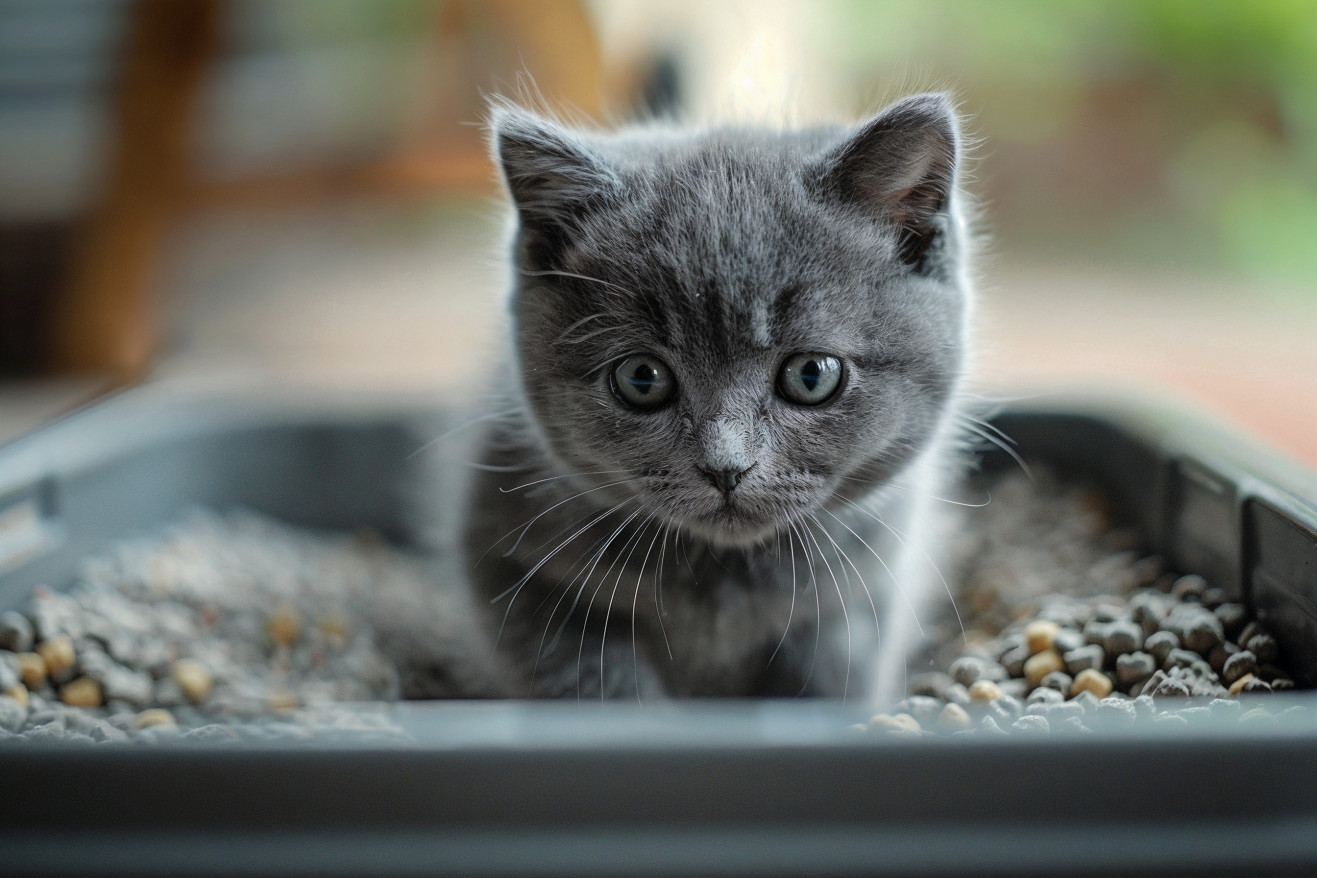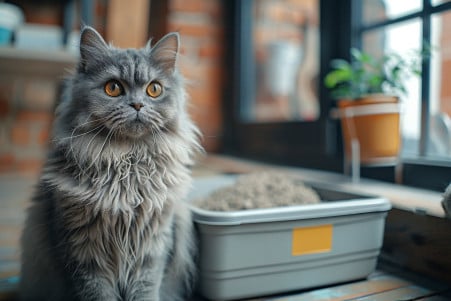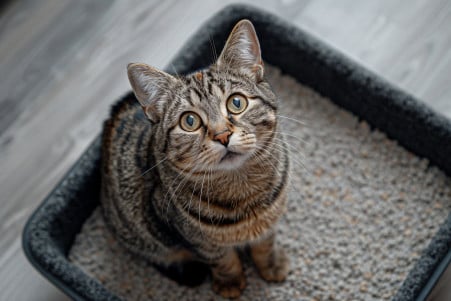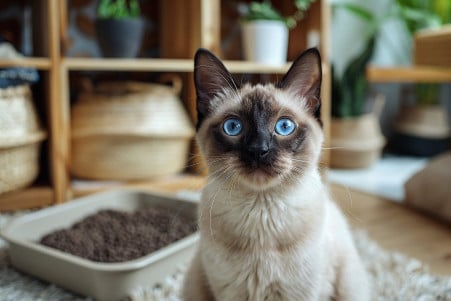How Often Do Kittens Pee? Potty Training Guide for New Owners
15 June 2024 • Updated 13 June 2024

Between their small bladders and constant need for naps, it's no wonder that new kitten owners are often left asking just how often their new furry friend needs to go to the bathroom. On average, kittens need to pee every 2-4 hours and have very little control over their bladders until they are about 4 months old. Once they're older, healthy adult cats pee between 2-4 times a day if they are properly trained to use the litter box. Paying attention to these numbers can help you catch potential health problems.
However, these numbers are just a starting point. How often a kitten pees depends on a variety of factors including their age, what they eat, their living situation, and their individual habits. This article will help you set realistic expectations for your kitten's bathroom habits and help you train them to use the litter box by reviewing the latest research on cat physiology, behavior, and urination. This way, you can learn more about what to expect and make this time easier for both you and your kitten.
How often do kittens pee?
Litter Box Training: How to Help Kittens Succeed
Litter box training is the first step in helping kittens develop good bathroom habits. As noted by PetMD, you can begin the process at about 4 weeks of age by providing the right equipment, including a low-sided litter box and fine-grained litter. This is also around the time that kittens start weaning.
The VCA Animal Hospitals suggests that you introduce your kitten to the litter box by placing them in it and then using your fingers to dig in the litter to show them what to do. Give them treats when they use the box successfully. Positive reinforcement and a clean, quiet environment are important for training. As recommended by the Kitten Lady, use a shallow, open-top box and pellet litter to prevent ingestion.
Remember that it can take several weeks to fully train a kitten. If there are accidents, Hill's Pet warns against punishing the kitten. Instead, clean the area thoroughly and make changes, such as adding more litter boxes. It's also important to note that there may be medical reasons for litter box issues, so talk to your vet if you're having problems.
Frequent Urination in Cats: What It Could Mean and When to Worry
Frequent urination in kittens can be a sign of several different health problems. As noted by the Pet Health Network, frequent urination of small volumes (oliguria) can be a sign of bladder irritation, obstruction, or inflammation, while frequent urination of large volumes (polyuria) can be a sign of kidney disease, hormonal issues, or the inability to concentrate urine.
According to Vetster, frequent urination can also be a sign of urinary tract infections, kidney infections, and obstructions like crystals or stones. Since some of the causes of frequent urination can be life-threatening, it's important to seek veterinary care if a kitten starts urinating more frequently.
Water Requirements: Making Sure Your Kitten Stays Hydrated
Water is essential for maintaining a healthy urinary system in kittens. According to the Cornell University College of Veterinary Medicine, kittens should consume between 50-60 ml of water per kg of body weight each day. Wet food can make up a large portion of a kitten's daily water intake, with a single can of wet food being made up of 70-80% water, according to Preventive Vet.
Low water intake can lead to an increased risk of bladder and urinary tract problems in kittens. According to Expert Cat Care, low water intake that leads to more concentrated urine is a risk factor for bladder stones and idiopathic cystitis. To help ensure that your kitten doesn't become dehydrated and develop urinary problems, make sure that they have access to fresh water and keep an eye on how much they are drinking.
Promoting Urinary Tract Health: Prevention and Management Strategies
Urinary tract infections (UTIs) and feline lower urinary tract disease (FLUTD) are common issues in kittens, with symptoms including frequent urination, pain during urination, blood in urine, and urinating outside the litter box. According to the FetchFind Blog, proper litter box hygiene, encouraging water intake, and reducing stress can help prevent UTIs.
As noted by Bond Vet, specialized urinary diets and supplements may also aid in preventing and managing urinary tract issues. The AVES Animal Hospital recommends feeding diets low in minerals like magnesium, phosphorus, and calcium that can contribute to crystal and stone formation. Supplements like D-mannose, glycosaminoglycans, and cranberries may also help support urinary tract health.
Regardless of prevention methods, WebMD emphasizes that regular veterinary check-ups and prompt treatment are essential for addressing any underlying urinary tract problems in kittens. With the right care and management, owners can help their growing kittens maintain a healthy urinary system.
Conclusion: How to Encourage Healthy Urination in Growing Kittens
Kittens have small bladders and need to urinate often, every 2-4 hours. Most cats will urinate every time they go to the litter box, and the clumps should be the size of a golf ball to a tennis ball, according to PetMD. That said, kittens may need to urinate more often than adult cats.
The most important things that will impact how often a cat needs to urinate are their health and their diet. PetMD says that a healthy cat eating canned food should be able to produce a good amount of urine two to three times a day, while cats eating dry food may produce a little less, which can lead to potential urinary issues.
Frequent urination of small volumes (oliguria) may indicate bladder irritation, obstruction, or inflammation, while increased urine volume (polyuria) may be a sign of kidney disease, hormonal disorders, or the body's inability to regulate urine formation, according to Pet Health Network. If a kitten's urination habits change, it's important to take them to the vet as soon as possible. With the right information and support, new kitten owners can help their pets grow and thrive.


